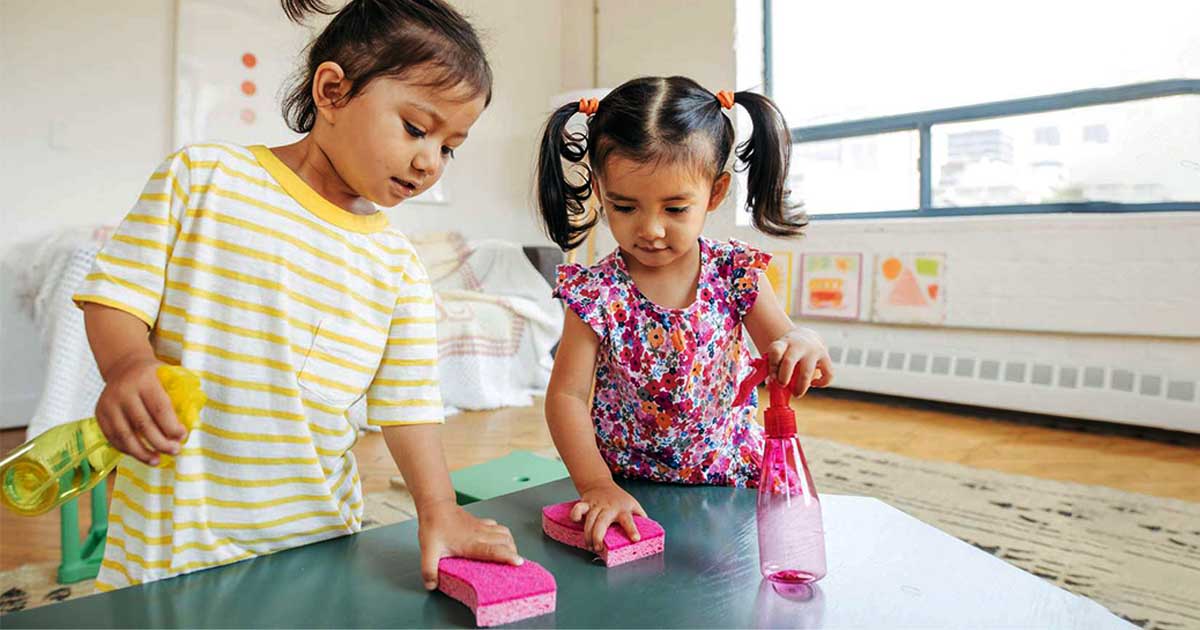Teaching kids about money is essential for helping them grow up to be smart about spending and saving. It’s not always easy to make learning about money fun, but some cool games and activities can help.
Whether your child is just learning to recognize coins or is old enough to think about saving for a car, you need a comprehensive plan before you delve into how to teach kids about money.
Here’s a list of 10 games that can teach kids about different parts of managing money, from saving and earning to investing and spending wisely.
By starting these lessons early and making them fun, we can help our kids grow up to be wise about money. Let’s play, learn, and grow together, teaching our kids to be smart about money in a way that sticks with them as they grow up.
How To Teach Kids About Money
Teaching kids about money is crucial for their development into financially responsible adults.

Here are some age-appropriate tips and strategies for teaching kids about money:
1. Preschoolers (Ages 3-5)
Identify Coins and Bills: Start with the basics by teaching them to identify different coins and bills, and teach kids their values.
Use a Piggy Bank: Encourage them to save money in a piggy bank and explain the concept of saving for something they want.
2. Elementary School Children (Ages 6-10)
Earn Allowance: Introduce the concept of earning money through allowance for chores. This teaches them that money is earned and has value.
Budget Basics: Help them create a simple budget for their allowance. Teach them to allocate their money for spending, saving, and giving.
Open a Savings Account: Accompany them to open a savings account in their name. This can teach them about interest and the importance of saving.
3. Preteens (Ages 11-13)
Smart Shopping: Teach them to compare prices and understand the value of money when shopping. Encourage them to make decisions about spending their own money.
Introduce Investments: Explain the basics of investing, such as stocks or savings bonds, to teach them how money can grow over time.
4. (Ages 14-18)
Budgeting for Bigger Expenses: Help them manage a more complex budget, perhaps for their first car or college savings.
Use of Credit and Debit Cards: Teach them about credit, how it works, the importance of paying off balances, and the consequences of debt.
Earn and Manage Money: Encourage part-time work or entrepreneurial ventures, teaching them to manage their earnings, pay taxes, and save for the future.
5. All Ages: Everyday Learning Opportunities
Shopping: Involve them in shopping decisions, explaining why you choose one product over another, discussing discounts, and budgeting for groceries.
Games: Use board games to teach kids about money, like Monopoly, or online games and apps designed to teach financial literacy in a fun and engaging way.
Family Financial Meetings: Include children in discussions about family finances in an age-appropriate way. This could be about budgeting for a vacation, saving for a new car, or planning for home improvements.
10 Games To Teach Kids About Money
Integrating learning about money through games can make financial education both fun and effective for kids. Here are 10 games, including board games, online games, and apps, designed to teach children about money management:
1. Monopoly
Age Group: 8+
If you are trying to learn how to teach kids about money, there is no better board game than Monopoly in the market.

Real estate, banks, budgets, negotiations, and jail as a financial penalty. Monopoly is more than just a trading game; it’s also a full lesson in banking strategy and risk control.
Players learn the importance of investing in property, collecting rent, and building portfolios to generate income. The game also has players deal with unpredictable variables like Chance and Community Chest cards that teach them about financial surprises — good or bad.
To successfully win the game, players have to trade properties by negotiating prices with others, teaching them how to manage cash flow without going bankrupt.
Overall, Monopoly makes for great educational gameplay because it helps kids understand real estate investments and the importance of money management.
2. The Game of Life
Age Group: 8+
Career choices’ effect on financial stability, insurance importance, and loan consequences on personal finance are taught through this game.

The Game of Life simulates an entire lifetime in one go — college to retirement— including all the financial decisions made along the way.
Players choose career paths that affect their salaries and make life decisions like buying homes (on top of insurance), which impact their expenses for years to come. It introduces the concept of insurance early for children with high-value items as well as loans so they can start learning the consequences of debt at a young age too.
In addition to that, learning how to teach kids about money is not only about the coins and the notes but it is also about the lessons learned from life.
it highlights the significance of life events like marriage or having kids when planning financially for the future.
3. Payday
Age Group: 8+
Teaches budgeting monthly income & expenses, unexpected costs, and savings importance.
Payday forces players into a month-long balancing act between bills and opportunities for extra earnings so they can figure out how much money they have left over at every given moment.
The objective of this game is to help players budget their paychecks by setting aside enough money for necessary expenses while saving some for bigger goals too (like trips or something else).
As expected, some unexpected bills and expenses will eat into your little stash of cash which will result in you having to take out loans.
One thing Payday emphasizes is making sure you pay off your loans as soon as possible so you don’t get caught up in interest charges.
4. Cashflow for Kids
Age Group: 6+
Basic investment principles, financial independence, and distinguishing between assets and liabilities.

Created by Robert Kiyosaki, Cashflow for Kids offers a simplified explanation of complicated finance concepts through board games to make it easier for children to understand.
In this game, players learn the significance behind building an income-generating asset and how to spot one from liabilities that drain it out. This encourages strategic thinking about using money to create more wealth rather than just earning it and then spending it impulsively later on.
Ultimately, you will be able to learn how to teach kids about money through investing and passive income with Cashflow for Kids.
5. Money Bags
Age Group: 7+
Your child will learn how to recognize coins, count change, and perform basic math skills related to money through this engaging board game.
Money Bags offers a unique twist as players must collect their game money by combining different coin amounts to reach the total sum. This reinforces what they learned in math class while teaching them the value of individual coins and how to make a change.
They’ll also be introduced to basic financial decisions like earning money through chores and deciding how they want to spend it wisely. This game is an excellent tool for children who are just beginning to handle money on their own.
6. BizKids
Age Group: Middle School
The educational public TV series “BizKids” comes with plenty of resources that will help you how to teach kids about money.

Interactive online activities have children decide on marketing strategies, customer service practices, pricing models, and budgeting for operations as they manage a virtual business.
It’s a great way for your child to think like an entrepreneur while gaining experience in running a company.
7. Bankaroo
Age Group: 5-14
Helps in teaching kids about budgeting, saving for goals, and understanding the value of money. Bankaroo is a virtual banking app that helps kids keep track of their allowance, gift money, and funds toward goals.
With features that let them categorize expenses, prioritize spending habits, and save up for future purchases. It even introduces concepts such as interest so your child can safely understand banking at a young age.
8. STAX
Age Group: 14+
Teaches investment strategies, stock market basics, and market forces impact awareness tools. Players begin this online game with some virtual cash before making decisions about buying or selling stocks based on trends or news events that would affect real-world markets too.
Making investment choices when it’s safe is crucial here so users understand concepts such as diversification, risk management, and patience when thinking over the long-term impacts of decisions instead of rushing into them.
It’s a powerful tool for teaching young investors about the complexities of the stock market and investment principles.
9. Tycoon Games (like RollerCoaster Tycoon or Lemonade Stand)
Age Group: Varies by game

Tycoon games are simulations that challenge players to build and manage their own business, be it an amusement park or lemonade stand. It not only helps you learn how to teach kids about money but also creates a space for passion and creativity.
These games teach children how to analyze supply and demand with pricing strategies, allocate resources effectively to please customers while not overspending on expenses, and adapt their strategies when necessary due to changing conditions.
You can think of it as a fun way to train their entrepreneurial skills along with a critical problem-solving mindset.
10. Savings Spree
Age Group: 7+
There’s a lot to learn when it comes to managing money. Savings Spree is an app that puts decision-making at the forefront of its curriculum.
With award-winning interactive games, kids learn about how their choices daily can have a big impact on their savings and spending. The games cover everything from earning to donating, with each one facing them with a different scenario where they need to decide what’s best for their money.
By playing these educational games, children are learning the value of thinking things through before making any financial decisions. They’re also learning the significance of saving up for unexpected events and long-term goals, as well as giving back to help others.
An engaging way to introduce young children to personal finance in bite-sized lessons!
A Word From Mind Family
Teaching kids about money is not just about imparting financial knowledge; it’s about instilling lifelong skills that will empower them to make informed decisions about their finances.
By starting early and incorporating fun and interactive games into their learning, we can make financial education enjoyable and effective. From identifying coins to understanding complex investment strategies, there are numerous opportunities to engage children at every stage of their development.
As parents and educators, it’s our responsibility to equip our children with the tools they need to navigate the increasingly complex world of personal finance.
So let’s continue to play, learn, and grow together as a Mind Family, building a future generation of financially savvy individuals.
Frequently Asked Questions (FAQs)
1. How to teach kids about money?
Teach kids about money by starting with basics like coin identification and piggy banks, gradually introducing concepts like budgeting, earning allowance, and even investing as they grow older.
2. What are some games to teach kids about money?
Games to teach kids about money include Monopoly, The Game of Life, and Cashflow for Kids are effective tools for teaching money management skills through fun and engaging gameplay.
3. Why do you need to teach kids about money?
Teaching kids about money is crucial for their financial literacy and future success. It helps instill responsible spending habits, encourages saving and investing, and empowers them to make informed financial decisions as adults.











